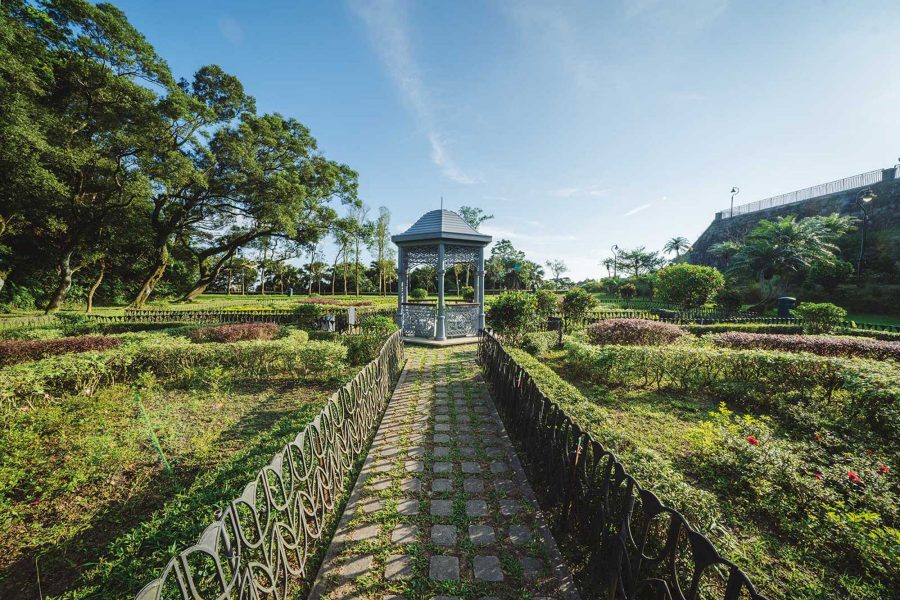Sixty-five million visitors descended on Hong Kong in 2018, and on some days it seemed like all of them decided to take a gawp at Victoria Peak at the same time. Also known as Mount Austin, guidebook writers were puffing its virtues (‘a never-failing thrill to the tourist’, condescended one 1953 tome) decades before TripAdvisor’s founder was even born.
Hence the thickets of selfie sticks that swirl around the upper terminus of the Peak Tram funicular (which recently underwent a HK$684 million makeover that’s supersizing the carriages), ooh-ing and aah-ing at the panoramas, sluicing in the eateries, and doing the veni, vidi, Visa thing in the souvenir shops before tumbling back down into the city. Been there, bucketed that.
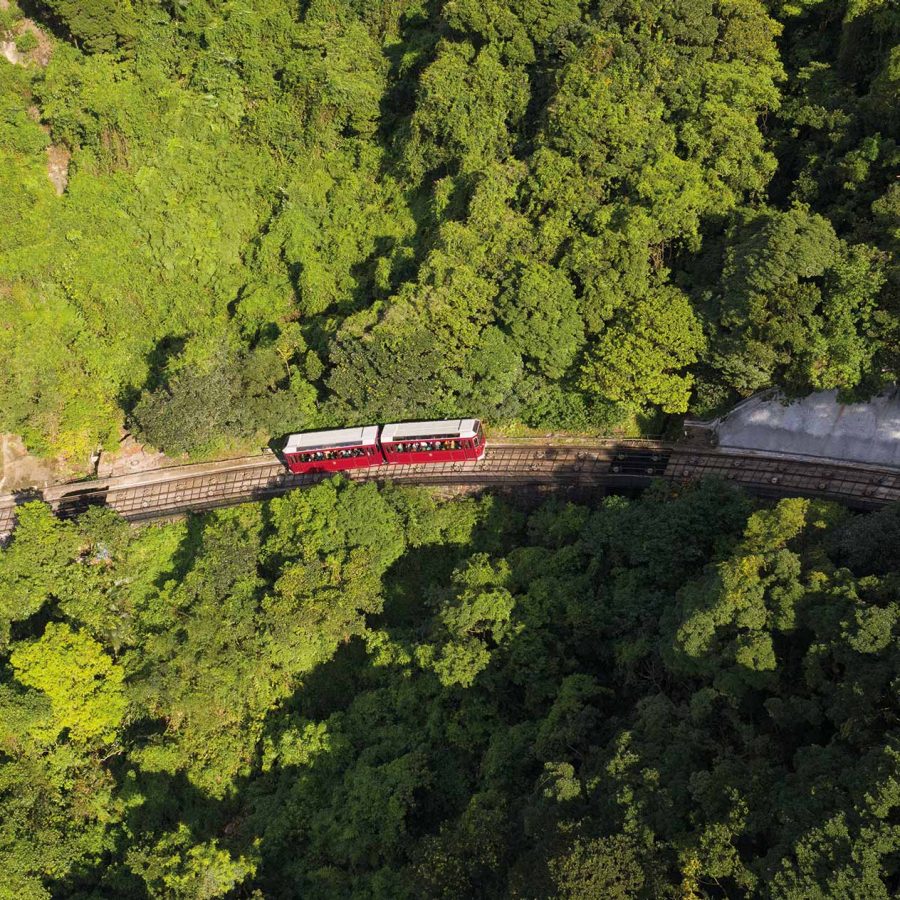
Credit: Derry Ainsworth
But here’s the thing: remarkably few visitors make it as far as Victoria Peak Garden, a stiff walk up Mount Austin Road from the boat-shaped Peak Tower and almost the highest accessible point of this 554-metre, long-extinct volcano. The garden is capped by a pavilion guarded by a brace of imperial lions, and most days it’s deserted apart from a handful of sightseers, some dog walkers and perhaps a put-upon bride and groom who’ve been dragooned into having their official wedding photos taken here. Until it was demolished in 1946, this was the site of Mountain Lodge, an airy retreat from the urban maw for the governor, and it’s a reminder that rather than Must-Gram No 1, the Peak – Tai Ping Shan in local parlance – is a living, breathing (the air’s clearer up here) community; albeit one where children’s playgrounds are routinely jazzed up with topiary, no self-respecting Maserati lacks a personalised number plate and being a billionaire barely rates as a distinction. At the Matilda Hospital on Mount Kellett Road, two nights in a private room plus natural delivery costs HK$38,500 (US$4,900). Parents enrolling their tots at the Highgate House School International Steiner Waldorf Pre-School on Peak Road shell out HK$665 an hour for bilingual English and Mandarin classes. No doubt about it, this is where Hong Kong’s upper echelon hangs out, and has done for a very long time.
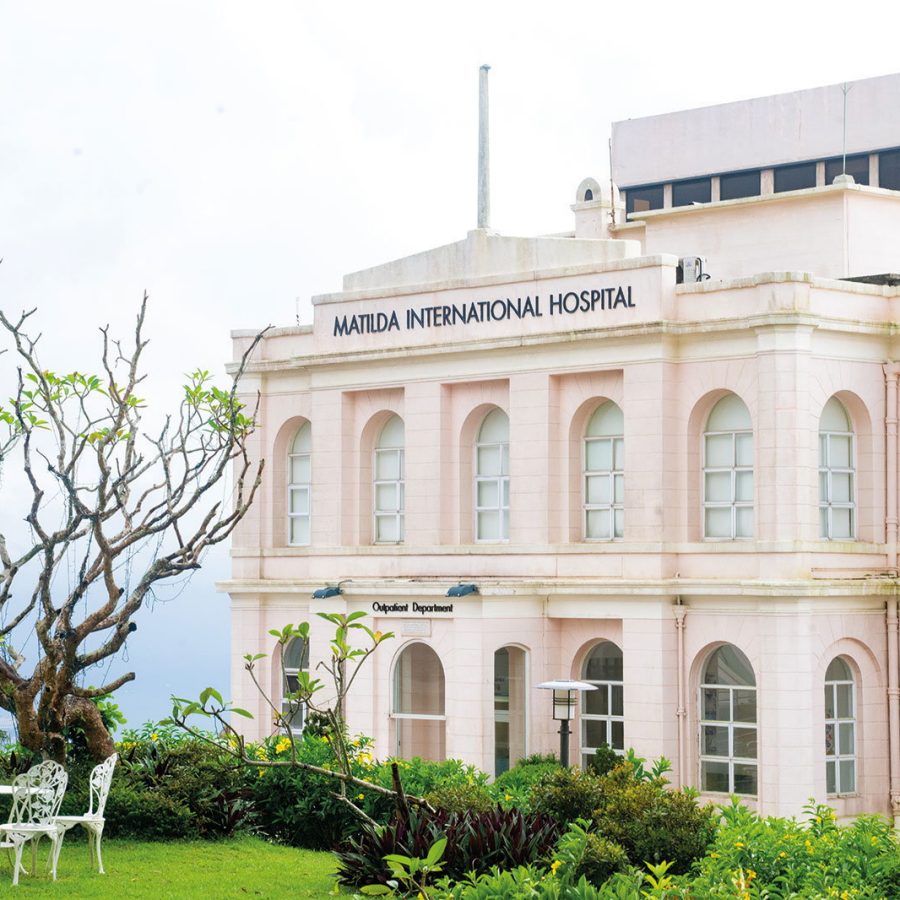
Credit: Derry Ainsworth
Back in the 19th century Hong Kong’s wealthier residents soon twigged that the Peak afforded cooler climes and the space to spread out and indulge their whims. Opium baron Emanuel Belilios, who owned the Eyrie, the highest residence on Mount Austin, was said to have commuted to his office by camel. Other houses, hotels, a police station and a chapel subsequently sprang up nearby. And once the Peak Tram opened in 1888, the Peak unquestionably became a place to see and be seen.
So it’s no surprise that nowadays the Peak hosts Hong Kong’s hottest property, with prices topping HK$150,000 per square foot, and attracting, among others, Alibaba founder Jack Ma, such homegrown megabucks tycoons as Lee Shau-kee, and – if you include Madame Tussauds ’ waxworks in the Peak Tower – Albert Einstein.
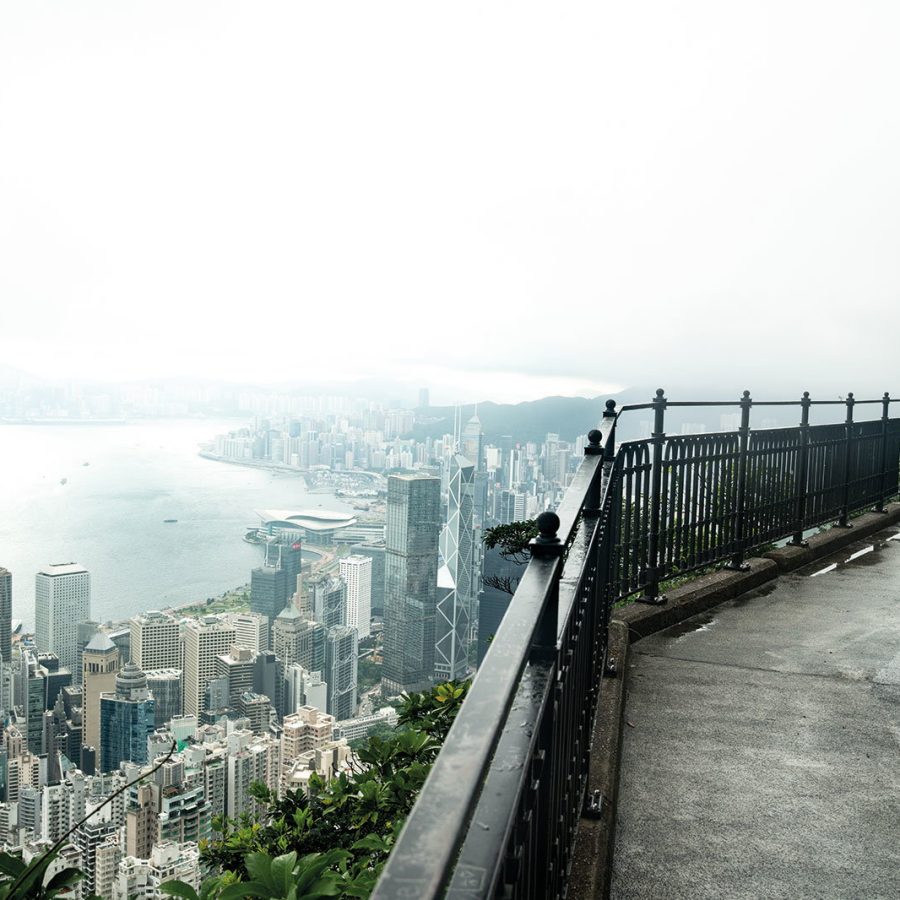
Credit: Derry Ainsworth
‘The Peak’s got the views, it’s a nice environment, but most of all it’s got kudos with a capital K,’ says John Lam, executive director of real estate research at UBS Hong Kong. ‘What we’re seeing now is the big old houses being demolished and replaced by several smaller units on the same site: buyers from the Chinese mainland account for up to 60 per cent of the market, partly attracted by the high level of security – some developments are staffed by guards trained by former British Special Air Service (SAS) troopers.’
The boundary walls may be high and their video cameras perennially inquisitive, but there’s no reason why visitors shouldn’t shun the crowds and meander past some of the Peak’s more singular mansions. Lugard Road – in truth more of a broad footpath – leads north from the Peak Tower, contouring beneath the thick canopy of camphor, Chinese hackberry and banyan trees that’s home to rather more birds than might be supposed in one of the world’s most densely populated cities. Within five minutes, other humans practically vanish, and peace descends.
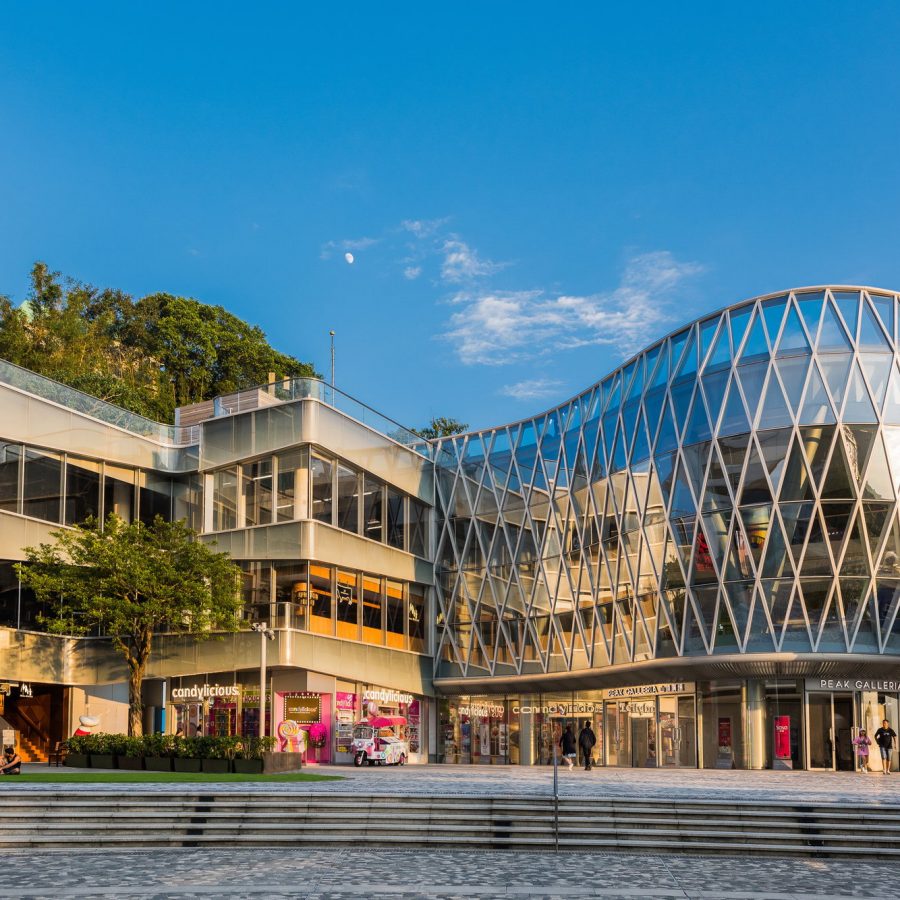
Occasional gaps in the foliage provide magnificent vistas of harbour and metropolis, with container ships looking like so many bath toys and skyscrapers reduced to Lego blocks. Halfway round the circuit, a steep diversion down Hatton Road – again, simply a paved trail – leads to the eerie remains of Pinewood Battery, the scene of a brief but bloody encounter during the Second World War. Hatton is one of several pedestrian paths tracing a course up and down the Peak. Before the tram started running, it’s staggering to think sedan chair carriers tackled these vertiginous routes daily. Mercifully flat, Lugard segues into Harlech Road, which obligingly concludes the 3.5-kilometre circumambulation back at the Peak Tower.
Like the Peak Tram, the Tower’s neighbour, Peak Galleria , is being pulled up by its designer-label bootstraps. The mall has just reopened, sporting a wealth of public space, broad viewing decks and some 60 outlets including what’s billed as the world’s first Monopoly-themed experiential pavilion, Monopoly Dreams . Naturally, the most expensive square in the Hong Kong version of the board game belongs to the Peak.
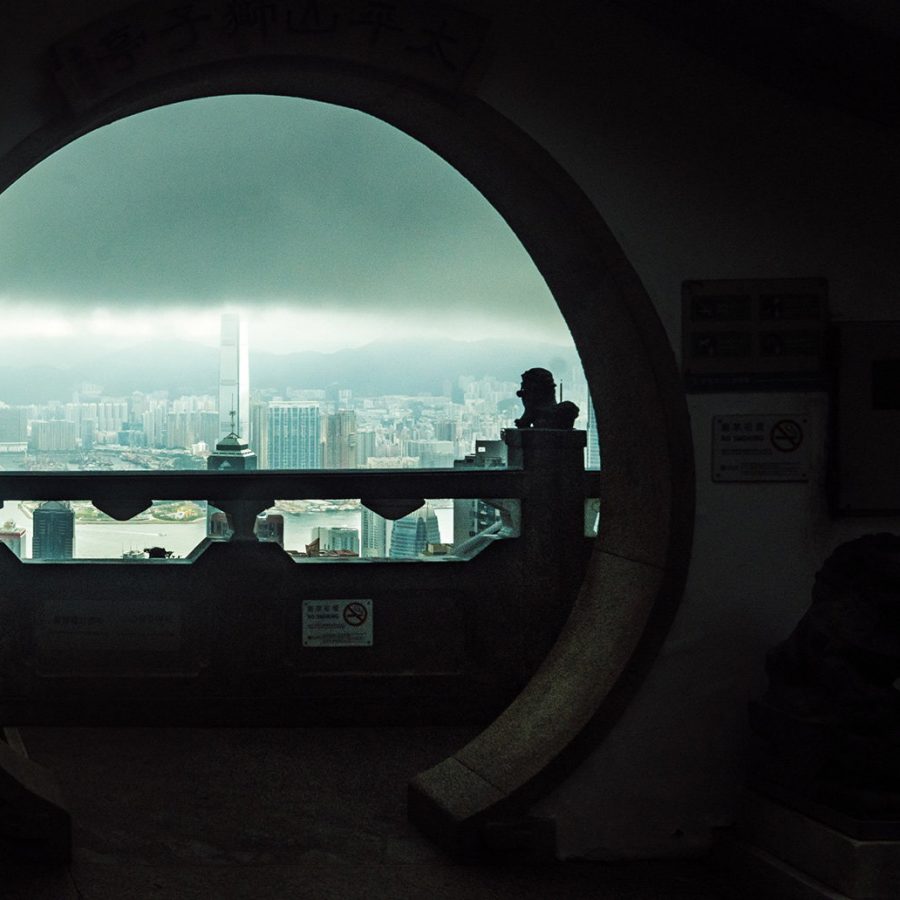
Credit: Derry Ainsworth
The mall’s pulled in some high-profile tenants, including Black Sheep Restaurants’ Rajasthan Rifles , which serves up a new take on Anglo-Indian nosh.
‘Hong Kong has many iconic locations that cater to tourists but we wanted to create something for residents of the area as well,’ says Black Sheep Restaurants co-founder Syed Asim Hussain. ‘We hope Rajasthan Rifles becomes the kind of place you come for a mid-week date-night dinner, or hike up to at the weekend with your friends and dogs for long brunches in the sun.’
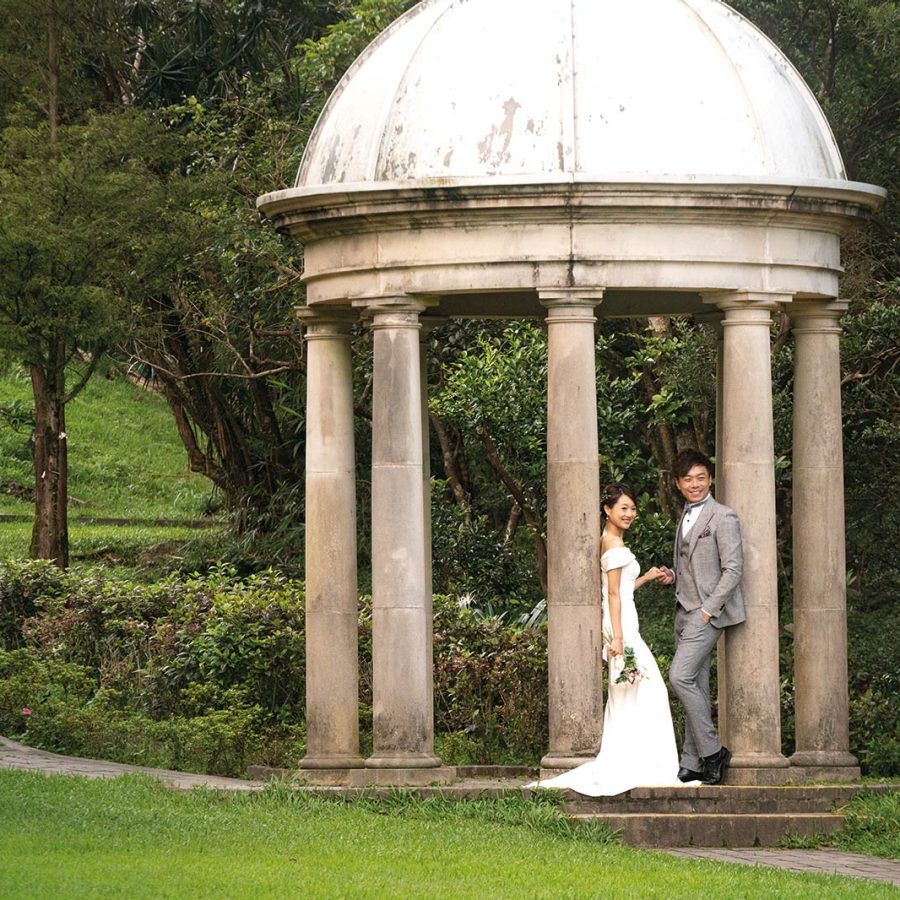
Credit: Derry Ainsworth
Physically, metaphorically, socially, the Peak has always been the acme of Hong Kong. Rather than being part of a touristic top 10, it’s a glorious window into life at the top of the city.
Go Further on the Peak
Kids (and adults too) can design and create their own cuddly toy – even adding sound effects and scents – at the newly opened Build-A-Bear Workshop in the Peak Galleria.
Historian Martin Heyes, a former British Army officer, leads informative, in-depth tours around the Peak and into the adjacent Country Parks.
Wooderful Life , another new opening in the Peak Galleria, does what it says on the box, so to speak. The wooden gift maker offers music boxes and home décor items, as well as DIY services for guests to customise their products.
Before leaving the Peak, be sure to snap a photo with the green post box outside the Peak Lookout restaurant – it’s one of the 59 in Hong Kong that still bears the British royal cipher.
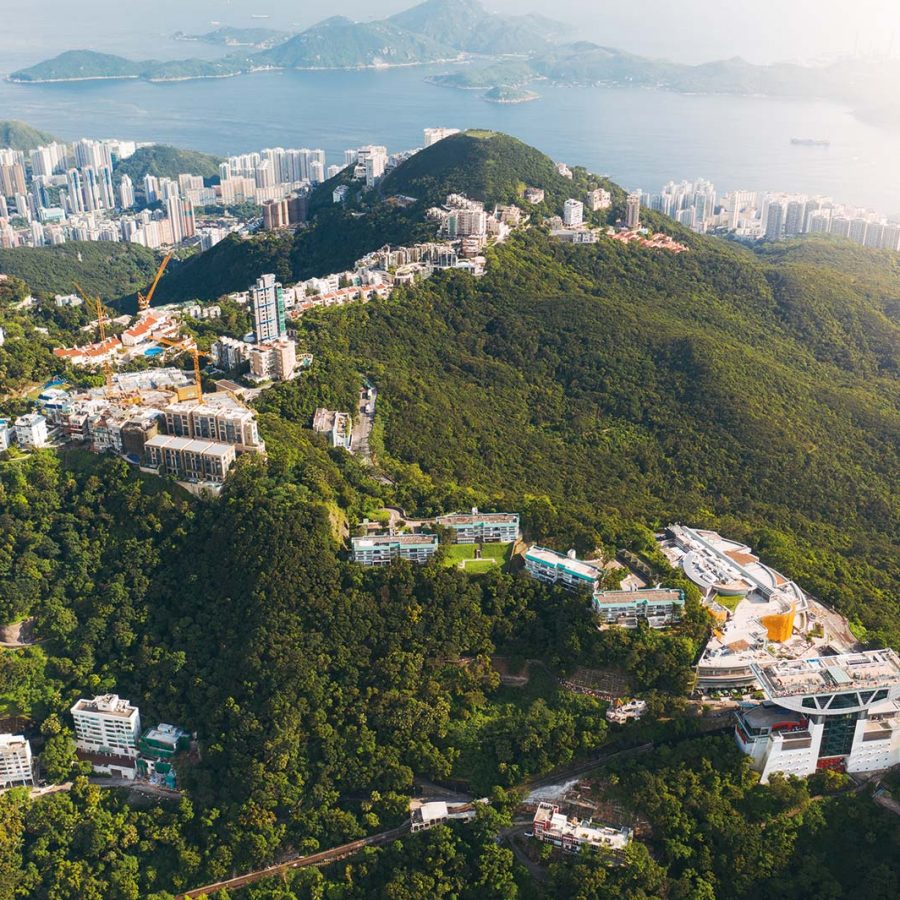
Credit: Derry Ainsworth
Hong Kong travel information
- China – the Chinese Mainland, Hong Kong SAR, Macao SAR and Taiwan Region
- Hong Kong SAR - English
- Chinese Mainland (China) - English
- Taiwan, China - English
- 香港特別行政區 - 繁體中文
- 中国內地 - 简体中文
- 中國台灣 - 繁體中文
- Africa
- South Africa - English
- Asia
- Bangladesh - English
- Korea - English
- Singapore - English
- Cambodia - English
- 한국 - 한국어
- Sri Lanka - English
- India - English
- Malaysia - English
- Thailand - English
- Indonesia - English
- Maldives - English
- ประเทศไทย - ภาษาไทย
- Indonesia - Bahasa Indonesia
- Myanmar - English
- Vietnam - English
- Japan - English
- Nepal - English
- Việt Nam - tiếng Việt
- 日本 - 日本語
- Philippines - English
- Australasia
- Australia - English
- New Zealand - English
